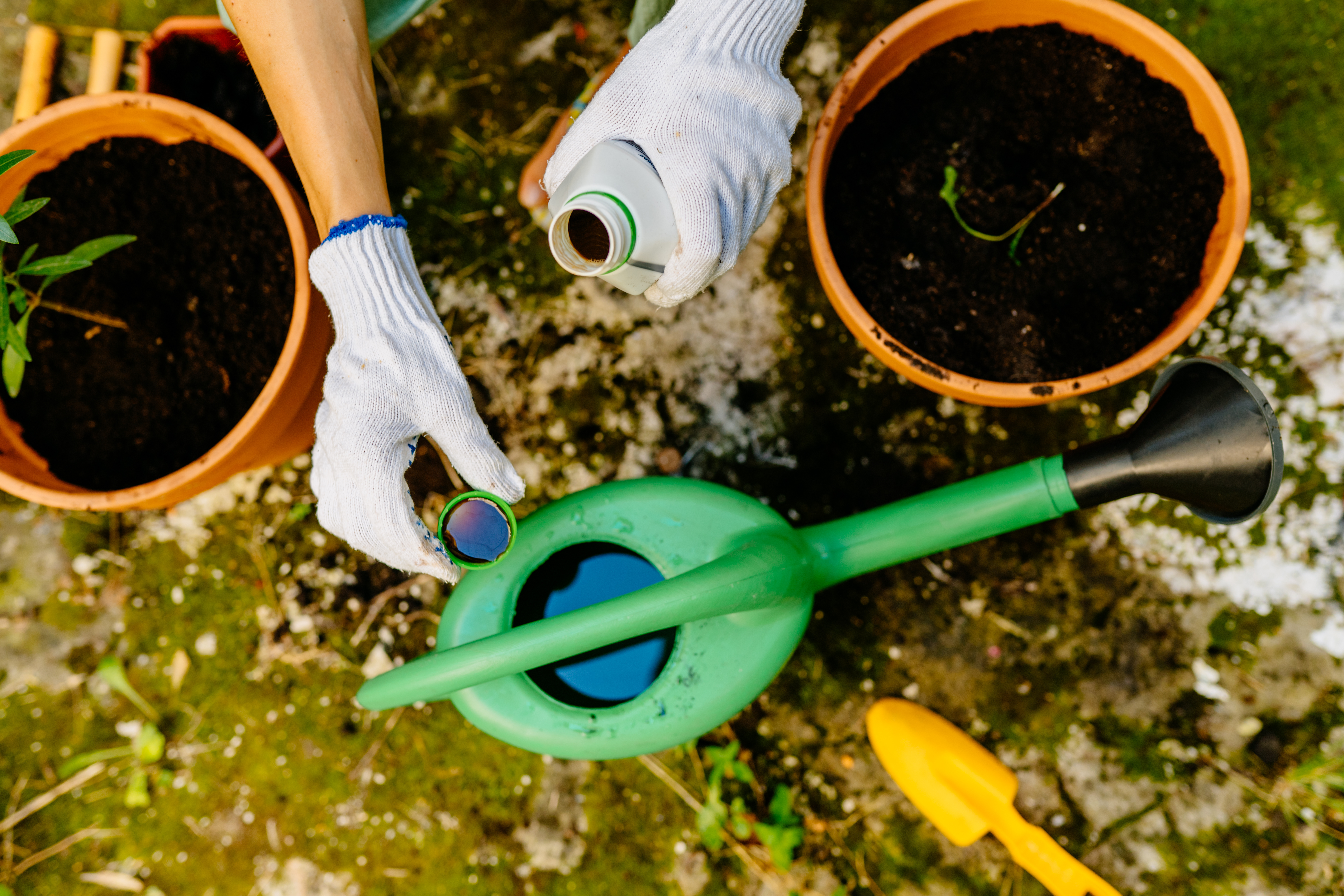Why is this happening?
Too much fertilizer can potentially cause a chemical burn on the roots of your plant. In severe cases, it can also cause the whole plant to wilt and die. This is something that you might see happen within a few days of fertilizing. You'll need to act quickly if your plant has been overfertilized.
Symptoms
Burned and scorched leaves
Yellowing leaves
Decreased growth
Wilting, drooping, or the plant collapsing
Browning leaf tips

What to do now
Carefully remove all yellow or severely damaged leaves from your plant
Rinse the soil thoroughly with water (put the plant under a tap and let water run through the pot). Remove any remaining fertilizer residue.
Cut back on fertilizing for a while to allow your plant the chance to recover. You can skip the fertilizing actions in Planta
Salt buildup
You may see fertilizer salts building up on the soil surface or the outside of a clay pot. It will look like white, dry dust on the top layer of the soil.
This isn't a problem on its own, but rinsing the soil is still advised to make sure the roots of your plant are okay and are not getting burnt.
Common questions
How can I prevent this in the future?
Always make sure to carefully read the label of the fertilizer you buy and make sure you are diluting it correctly. If your plant has been overfertilized, it might even be a good idea to cut down on the recommended amount even more than suggested on the package. Never add liquid fertilizer directly to the soil without diluting it.
Also remember that you won’t get a better result by giving extra fertilizer to your plant. This will only cause damage to your plant.
Plants are more susceptible to fertilizer burn if the soil has been dry for too long. So, if you know that you missed a few waterings, skip fertilizing until the soil moisture has normalized.
There are many different types of fertilizer, which should I choose?
We recommend using a liquid fertilizer for your houseplants. Our fertilizing schedule is optimized for this type of fertilizing - which you add to your water when watering. This is, in our opinion, the safest and easiest way to fertilize your plant without risking burning the roots or giving too little fertilizer.
Why is too much fertilizer bad for my plants?
Fertilizer contains minerals and essential nutrients for your plants, which may otherwise be absent from the soil, and so it’s a good idea to fertilize your plants regularly in order to help them thrive and grow well in the long-term. Although good for your plant, these salts can also end up drawing out moisture or inhibiting water uptake which is essential for your plant. So when fertilizer is applied excessively, the consequences can be very similar to underwatering.